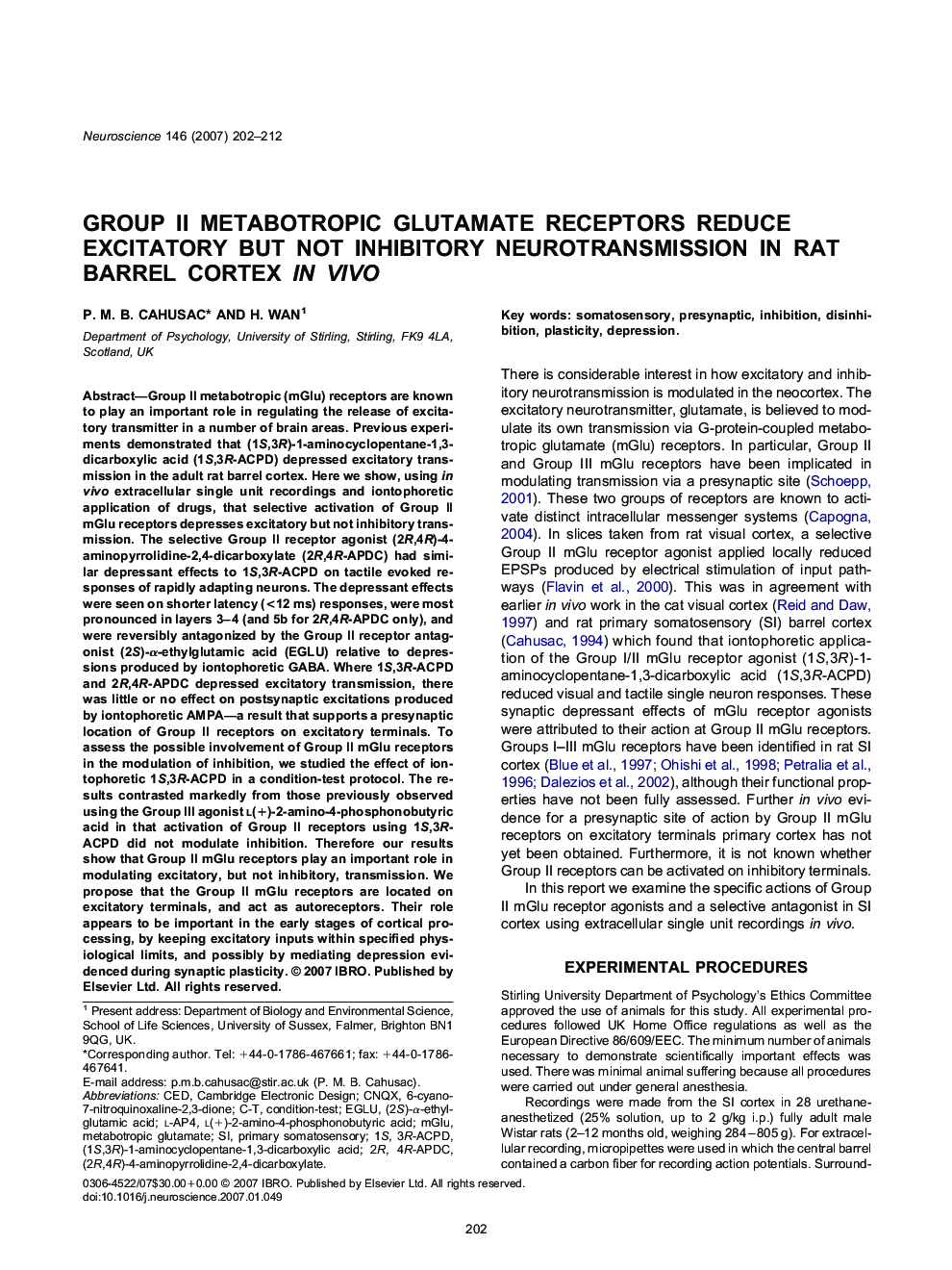| کد مقاله | کد نشریه | سال انتشار | مقاله انگلیسی | نسخه تمام متن |
|---|---|---|---|---|
| 4340984 | 1295818 | 2007 | 11 صفحه PDF | دانلود رایگان |

Group II metabotropic (mGlu) receptors are known to play an important role in regulating the release of excitatory transmitter in a number of brain areas. Previous experiments demonstrated that (1S,3R)-1-aminocyclopentane-1,3-dicarboxylic acid (1S,3R-ACPD) depressed excitatory transmission in the adult rat barrel cortex. Here we show, using in vivo extracellular single unit recordings and iontophoretic application of drugs, that selective activation of Group II mGlu receptors depresses excitatory but not inhibitory transmission. The selective Group II receptor agonist (2R,4R)-4-aminopyrrolidine-2,4-dicarboxylate (2R,4R-APDC) had similar depressant effects to 1S,3R-ACPD on tactile evoked responses of rapidly adapting neurons. The depressant effects were seen on shorter latency (<12 ms) responses, were most pronounced in layers 3–4 (and 5b for 2R,4R-APDC only), and were reversibly antagonized by the Group II receptor antagonist (2S)-α-ethylglutamic acid (EGLU) relative to depressions produced by iontophoretic GABA. Where 1S,3R-ACPD and 2R,4R-APDC depressed excitatory transmission, there was little or no effect on postsynaptic excitations produced by iontophoretic AMPA—a result that supports a presynaptic location of Group II receptors on excitatory terminals. To assess the possible involvement of Group II mGlu receptors in the modulation of inhibition, we studied the effect of iontophoretic 1S,3R-ACPD in a condition-test protocol. The results contrasted markedly from those previously observed using the Group III agonist l(+)-2-amino-4-phosphonobutyric acid in that activation of Group II receptors using 1S,3R-ACPD did not modulate inhibition. Therefore our results show that Group II mGlu receptors play an important role in modulating excitatory, but not inhibitory, transmission. We propose that the Group II mGlu receptors are located on excitatory terminals, and act as autoreceptors. Their role appears to be important in the early stages of cortical processing, by keeping excitatory inputs within specified physiological limits, and possibly by mediating depression evidenced during synaptic plasticity.
Journal: Neuroscience - Volume 146, Issue 1, 25 April 2007, Pages 202–212